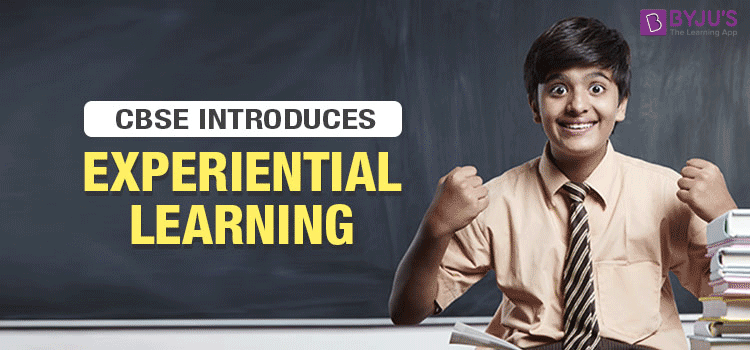
CBSE secretary Anurag Tripathi said starting from this academic year and into the foreseeable future consistently, the board will have a punchline. “Students should learn from what they study and use it. It should not be rote learning for them, which they only learn for exams and then forget,” he included. The CBSE will likewise push on scholarly improvement and before long will uncover an arrangement for it, he added.
Different advances have been taken by the Central Board of Secondary Education (CBSE) to make the teaching procedure student friendly. Guidelines have been issued to execute educational program in a student driven way with advancement of dynamic learning through spotlight on reflections as well as making and building knowledge.
Teachers have been encouraged to pursue comprehensive standards and not to label children as ‘slow learners’ or ‘moderate students’ or ‘bright students’, or ‘problem children’.
CBSE has presented Experiential Learning from 2019-20 session onward. As needs be, the schools plan curricular activities in such a way that it empowers the students to associate the content of their learning areas and subjects with their own lives and the world they live in. With the new method of learning, the experiential learning, there will be certain changes in the study plan such as:
- The schools will design the curricular exercises in such a way that it empowers students to associate the content of their learning territories and subjects with their very own lives and their general surroundings.
- The learning outcomes created by NCERT help the instructors to coordinate their teaching-learning process in an ideal method and make other stakeholders responsible and alert towards their job for guaranteeing quality training.
- So as to promote life skills and value education, CBSE has integrated health and physical training along with the academics. provides for one period per day for activities which leads to better stress management for children and also creates a better environment for learning.
- In accordance with the National Curriculum Framework (NCF), 2005, NCERT has created course readings that cover the perspectives of stress, uneasiness and other related issues in schools.The Psychology textbook of class XI addresses peace concerns in its chapter on ‘Motivation and Emotions’. The concerns for health and well-being have been taken up in the Psychology textbook of Class XII in chapter 3 on ‘Meeting Life Challenges’, which tries to equip the student with aspects and causes of stress and the development of positive health. NCERT through its Adolescence Education Program tries to inculcate life skills in the students who are at this crucial stage of their lives.
- NCF, 2005 advocates facilitating healthy growth and development of students across all school stages and scope for guidance/counselling at each of these school stages from elementary through secondary and higher secondary stages.
In an effort to promote dynamic and experiential learning and to instill a feeling of appreciation about the huge variety of Indian art forms, commencing from the new scholastic session, CBSE, the national board which controls secondary and higher education in affiliated schools, earlier this year, had chosen to incorporate Art with the instructing and learning procedure of every single subject from Class 1 to Class 12.
From the new session, Arts will be taught as an obligatory subject for Classes 1 to 12 and the Board has approached the schools to give facilities for the same. It likewise asked each school to save at least two periods every week, per class, for Art education.
Students of CBSE Class 10 can easily score high marks by practicing the CBSE Class 10 Sample Papers and understanding the answers rather than mugging up the answers without knowing what it is. The experiential learning emphasis on the kind of learning in which the students know the concepts and the practical use of it in daily life. Keep visiting BYJU’S for latest news and updates on CBSE.

Comments